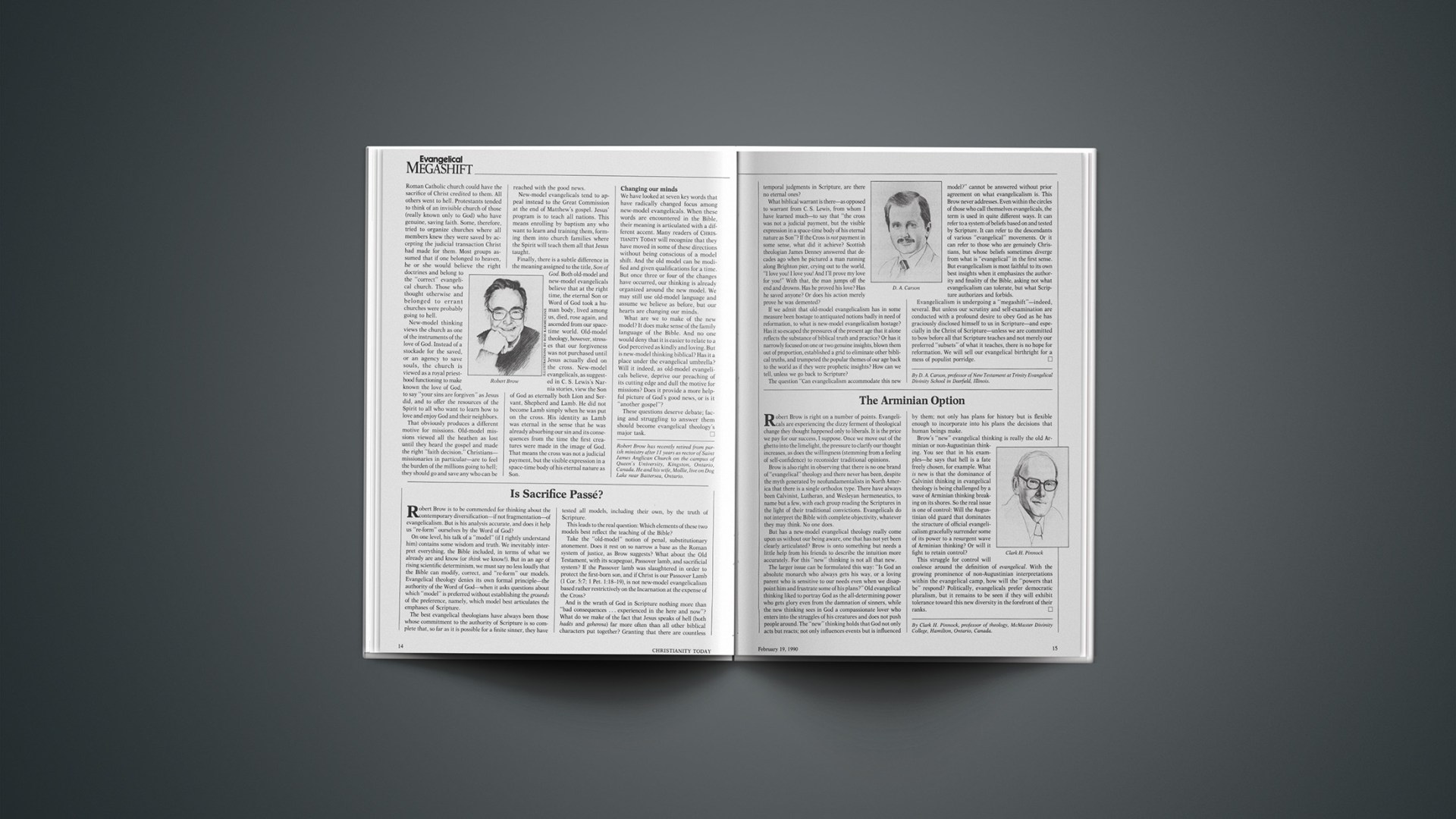Robert Brow is to be commended for thinking about the contemporary diversification—if not fragmentation—of evangelicalism. But is his analysis accurate, and does it help us “re-form” ourselves by the Word of God?
On one level, his talk of a “model” (if I rightly understand him) contains some wisdom and truth. We inevitably interpret everything, the Bible included, in terms of what we already are and know (or think we know!). But in an age of rising scientific determinism, we must say no less loudly that the Bible can modify, correct, and “re-form” our models. Evangelical theology denies its own formal principle—the authority of the Word of God—when it asks questions about which “model” is preferred without establishing the grounds of the preference, namely, which model best articulates the emphases of Scripture.
The best evangelical theologians have always been those whose commitment to the authority of Scripture is so complete that, so far as it is possible for a finite sinner, they have tested all models, including their own, by the truth of Scripture.
This leads to the real question: Which elements of these two models best reflect the teaching of the Bible?
Take the “old-model” notion of penal, substitutionary atonement. Does it rest on so narrow a base as the Roman system of justice, as Brow suggests? What about the Old Testament, with its scapegoat, Passover lamb, and sacrificial system? If the Passover lamb was slaughtered in order to protect the first-born son, and if Christ is our Passover Lamb (1 Cor. 5:7; 1 Pet. 1:18–19), is not new-model evangelicalism based rather restrictively on the Incarnation at the expense of the Cross?
And is the wrath of God in Scripture nothing more than “bad consequences … experienced in the here and now”? What do we make of the fact that Jesus speaks of hell (both hadēs and gehenna) far more often than all other biblical characters put together? Granting that there are countless temporal judgments in Scripture, are there no eternal ones?
What biblical warrant is there—as opposed to warrant from C. S. Lewis, from whom I have learned much—to say that “the cross was not a judicial payment, but the visible expression in a space-time body of his eternal nature as Son”? If the Cross is not payment in some sense, what did it achieve? Scottish theologian James Denney answered that decades ago when he pictured a man running along Brighton pier, crying out to the world, “I love you! I love you! And I’ll prove my love for you!” With that, the man jumps off the end and drowns. Has he proved his love? Has he saved anyone? Or does his action merely prove he was demented?
If we admit that old-model evangelicalism has in some measure been hostage to antiquated notions badly in need of reformation, to what is new-model evangelicalism hostage? Has it so escaped the pressures of the present age that it alone reflects the substance of biblical truth and practice? Or has it narrowly focused on one or two genuine insights, blown them out of proportion, established a grid to eliminate other biblical truths, and trumpeted the popular themes of our age back to the world as if they were prophetic insights? How can we tell, unless we go back to Scripture?
The question “Can evangelicalism accommodate this new model?” cannot be answered without prior agreement on what evangelicalism is. This Brow never addresses. Even within the circles of those who call themselves evangelicals, the term is used in quite different ways. It can refer to a system of beliefs based on and tested by Scripture. It can refer to the descendants of various “evangelical” movements. Or it can refer to those who are genuinely Christians, but whose beliefs sometimes diverge from what is “evangelical” in the first sense. But evangelicalism is most faithful to its own best insights when it emphasizes the authority and finality of the Bible, asking not what evangelicalism can tolerate, but what Scripture authorizes and forbids.
Evangelicalism is undergoing a “megashift”—indeed, several. But unless our scrutiny and self-examination are conducted with a profound desire to obey God as he has graciously disclosed himself to us in Scripture—and especially in the Christ of Scripture—unless we are committed to bow before all that Scripture teaches and not merely our preferred “subsets” of what it teaches, there is no hope for reformation. We will sell our evangelical birthright for a mess of populist porridge.
By D. A. Carson, professor of New Testament at Trinity Evangelical Divinity School in Deerfield, Illinois.










